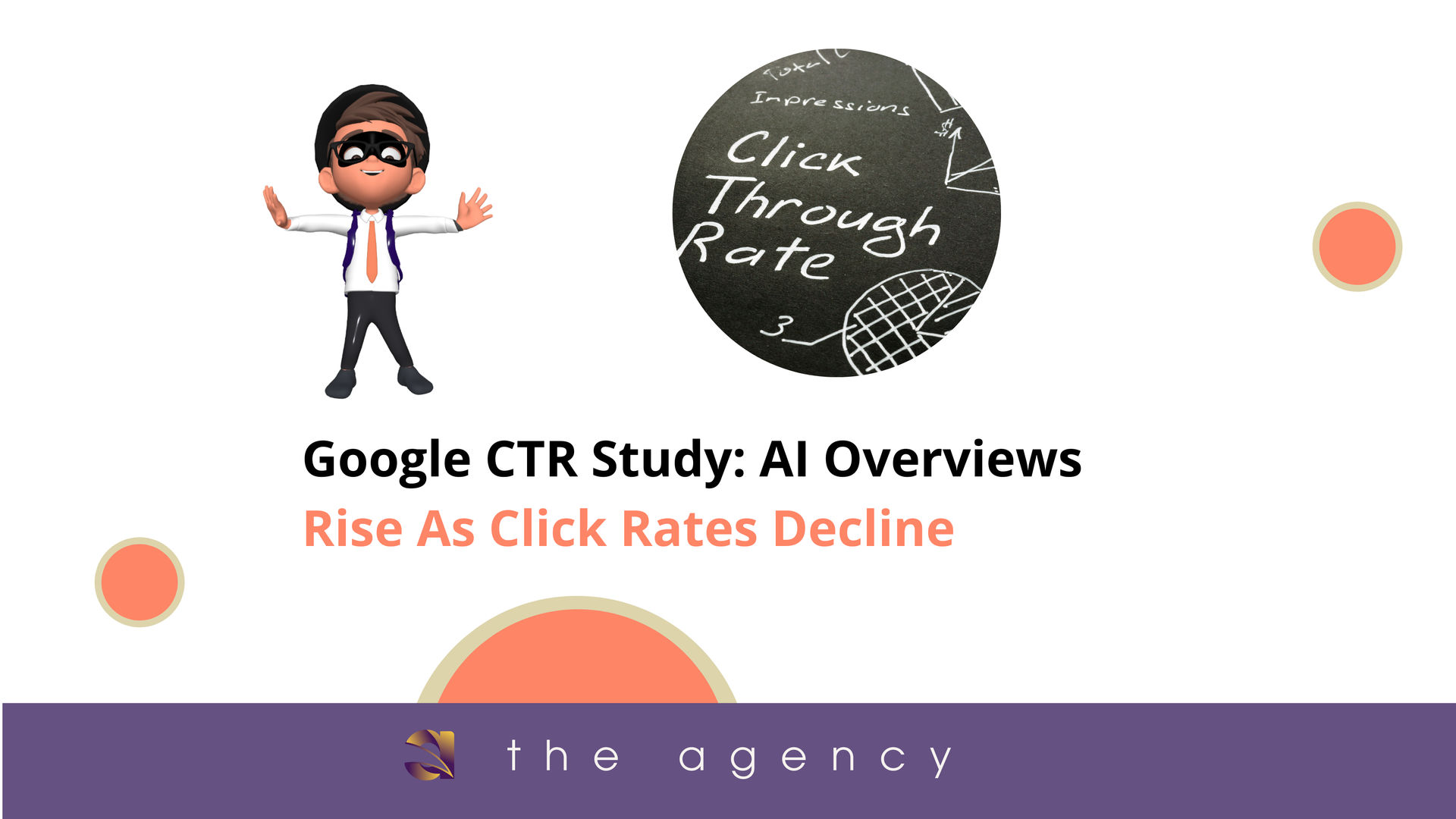Mastering Smart Marketing Goals: Your Path to Success
Setting Effective Smart Marketing
Goals for Success

Key Highlights
- SMART goals are crucial for success in marketing, with marketers who set well-defined goals being 376% more likely to report success.
- SMART goals are specific, measurable, achievable, relevant and time-bound.
- Crafting specific and measurable objectives is important for setting effective SMART marketing goals.
- SMART goals ensure that marketing efforts are aligned with the overall strategy and help drive success.
- Setting clear timelines and adjusting goals based on performance data are key for effective goal setting.
- Leveraging digital tools and templates can help in setting and tracking SMART marketing goals.
Setting smart marketing goals is essential for any business looking to achieve marketing success. Without clear goals and objectives, marketing efforts can lack direction and fail to generate the desired results.
According to a survey by Coschedule, marketers who set well-defined goals are 376% more likely to report success. This highlights the importance of setting effective SMART (Specific, Measurable, Achievable, Relevant, Time-bound) goals for marketing teams.
SMART goals provide a framework for creating goals that are clear, carefully planned, and easy to track. By following the SMART framework, marketers can ensure that their goals are specific, measurable, achievable, relevant, and time-bound. This helps in providing clarity to the marketing team about what needs to be achieved and how to get there.
In this blog, we will explore the importance of SMART goals in marketing, how to craft effective SMART marketing goals, and the tools and techniques that can be used to set and track these goals. We will also discuss how SMART goals can be integrated with marketing strategies, and the importance of monitoring and measuring success. Let's dive in and learn how to set effective SMART marketing goals for success.

Understanding SMART Goals in Marketing
SMART goals are a framework for setting goals that are clear, specific, and easily measurable. The SMART acronym stands for Specific, Measurable, Achievable, Relevant, and Time-bound. In the context marketing efforts, SMART goals help marketing teams define their objectives and set specific targets for their marketing campaigns. By following the SMART framework, marketers can ensure that their goals are well-defined and can be easily tracked and measured. SMART goals provide a roadmap for marketing teams to achieve success and ensure that their efforts are aligned with the overall business strategy.
Defining SMART Goals
Defining SMART goals involves breaking down each component of the SMART framework and applying it to marketing objectives.
Firstly, goals must be specific. This means they should be clearly outlined and leave no room for ambiguity or multiple interpretations. For example, instead of saying "Improve content performance," a specific goal would be "Improve MQL generation across all blog posts by 15% this quarter."
Secondly, goals must be measurable. This requires understanding the metrics that will be tracked and how success or failure will be determined. Setting key performance indicators (KPIs) and benchmarks allows for effective measurement and monitoring of progress.
Next, goals must be achievable. While it is important to set ambitious goals, they should also be realistic and practical. Taking into account factors such as team skills, capacity, and conflicting priorities ensures that goals are within reach.
Goals must also be relevant to the overall objectives of the company. Aligning marketing goals with the business strategy ensures that marketing efforts are contributing to the larger mission. Lastly, goals must be time-bound. Setting a deadline creates a sense of urgency and helps track progress. Realistic timelines ensure that goals can be achieved within the desired timeframe.
The Importance of SMART Goals for Marketing Success
SMART goals are essential for marketing success as they provide clarity, focus, and direction to marketing teams. By setting clear and measurable goals, marketing teams can understand what needs to be achieved and how to prioritize their efforts. This helps in aligning marketing activities with the overall business strategy and ensures that marketing efforts are contributing to the company's objectives.
SMART goals also provide a way to track progress and assess the success of marketing campaigns. By setting key performance indicators (KPIs) and benchmarks, marketing teams can measure the effectiveness of their strategies and make adjustments if necessary. This enables continuous improvement and drives better results.
Furthermore, SMART goals help in keeping the marketing team motivated and accountable. By setting specific and achievable targets, team members have a clear understanding of what is expected of them and can work towards achieving those goals. This fosters a sense of ownership and commitment, leading to increased productivity and success.

Crafting Your SMART Marketing Goals
Crafting SMART marketing goals involves setting specific and measurable objectives that are aligned with the overall business strategy. By following the SMART framework, marketing teams can ensure that their goals are well-defined and achievable. This involves setting specific and measurable objectives, ensuring they are relevant to the overall business strategy, and setting clear timelines for each goal. By crafting SMART marketing goals, teams can have a clear roadmap for success and ensure that their efforts are focused and targeted towards achieving specific outcomes.
Setting Specific and Measurable Objectives
Setting specific and measurable objectives is a crucial component of crafting SMART marketing goals. Specific objectives provide clarity and ensure that everyone on the marketing team understands what needs to be achieved. Measurable objectives allow for tracking and monitoring progress, and provide a way to determine the success or failure of marketing campaigns.
To set specific and measurable objectives, consider the following:
- Identify key performance indicators (KPIs) that align with your marketing goals. This could include metrics such as website traffic, lead generation, conversion rates, or social media engagement.
- Set clear targets for each KPI. For example, aim to increase website traffic by 20%, generate 100 new leads per month, or achieve a 10% increase in conversion rates.
- Set a realistic timeframe: Determine a specific period within which to achieve each goal.
- Communicate these targets clearly to your marketing team so that everyone is aligned and working towards the same objectives.
- Establish baseline metrics. Determine your current performance to measure progress against.
- Regularly track and measure progress against these objectives to ensure that you are on track and can make adjustments as needed.
Ensuring Goals Are Achievable and Relevant
When establishing smart marketing goals, it is crucial to ensure that they are achievable and relevant to your business objectives. Goals should be realistic and within reach, considering the resources at hand. Moreover, they need to align closely with the overall marketing strategy to drive meaningful results. By setting achievable and relevant goals, your marketing team can stay motivated and focus their efforts effectively to achieve success in their initiatives. This approach enhances productivity and aids in the sustainable growth of your marketing campaigns.

Time-Bound Strategies for Marketing Goals
Setting clear timelines for each marketing goal is crucial for success. By establishing specific deadlines, teams remain focused and accountable.
Adjust timelines based on performance indicators to stay agile. Effective time-bound strategies ensure progress tracking and timely goal completion. In the dynamic marketing landscape, adapting timelines based on market shifts is key. Embrace flexibility while upholding the commitment to achieving smart marketing objectives within defined timeframes.
Setting Clear Timelines for Each Goal
To ensure the effectiveness of your smart marketing goals, setting clear timelines for each objective is crucial. By establishing specific timeframes, you create a sense of urgency and accountability within your marketing team. This approach aids in prioritizing tasks, assessing progress, and making informed decisions for the next steps. Clear timelines also enable you to align your marketing efforts with broader business objectives and adapt strategies promptly based on performance data, enhancing the overall success of your campaigns.
Adjusting Timelines Based on Performance Data
It's crucial to adapt marketing timelines based on performance data. By such as engagement rates, conversion numbers, and ROI, you can determine if your current timeline is effective or needs adjustment. If a particular goal is progressing faster than anticipated, consider reallocating resources to capitalize on the momentum.
Conversely, if a goal is lagging, reassess the timeline and make necessary modifications to ensure timely and successful outcomes for your smart marketing goals. Keep a close eye on performance data to steer your marketing efforts towards success.

Tools and Techniques to Set SMART Goals
Leverage digital tools for efficient goal setting in marketing. Utilize templates and frameworks to streamline the process. Incorporate SMART goal framework for clarity and focus. Track progress using analytics to stay on course.
Leveraging Digital Tools for Goal Setting
Utilizing
digital tools is crucial for setting and tracking smart marketing goals efficiently. Platforms like
Google Analytics , social media insights, and email marketing software provide valuable data for informed decision-making. These tools help in monitoring metrics, analyzing trends, and optimizing strategies for better results.
By leveraging technology in goal setting, businesses can enhance their marketing efforts, measure ROI accurately, and stay competitive in the digital landscape. Embracing digital tools empowers marketers to streamline processes and achieve measurable outcomes effectively.
Utilizing Templates and Frameworks
Templates and frameworks provide a structured approach to setting SMART marketing goals. By leveraging pre-designed formats, marketers can efficiently outline objectives specific to their campaigns. Templates offer a systematic guide for goal setting, saving time and ensuring clarity in objectives. Frameworks provide a strategic outline that aligns with the SMART criteria, aiding in the creation of measurable goals. Utilizing these tools streamlines the goal-setting process, enabling teams to focus on implementing actionable strategies for marketing success.
Integrating SMART Goals with Marketing Strategies
To effectively integrate SMART goals with marketing strategies, align your objectives with overarching business goals. For instance, if increasing brand awareness is a priority, set specific goals around metrics like market share growth or new customer acquisition. By connecting SMART goals directly to your marketing efforts, you ensure that every campaign contributes to achieving measurable results. This approach not only guides your marketing team in the right direction but also provides a clear roadmap for success.
Aligning Goals with Business Objectives
It is crucial to align your marketing goals with your business objectives to ensure a coherent strategy. By integrating your marketing goals with the broader mission and vision of your company, you can drive meaningful results that directly contribute to overall success. This alignment helps in focusing your efforts towards activities that are in line with the organization's strategic direction, maximizing the impact of your marketing initiatives and enhancing the value they deliver to the business. This synergy between goals and objectives is key to achieving sustainable growth and profitability.
Examples of SMART Goals in Action
- Optimizing email marketing campaigns to increase open rates by 15% by the end of the year.
- Enhancing brand awareness through social media by growing followers on Instagram by 20% next quarter.
- Increasing organic traffic by 25% through SEO strategies by the next year.
- Improving lead generation by 30% through tailored content marketing efforts.
- Boosting customer base by 20% through targeted LinkedIn advertisements.
Monitoring and Measuring Success
Using key performance indicators (KPIs) is essential for monitoring and measuring success in marketing efforts. By analyzing analytics and metrics, marketers can track progress towards their goals. This data-driven approach allows for adjustments to be made promptly, ensuring that the team stays on track. Regularly reviewing KPIs provides valuable insights into the effectiveness of strategies, enabling stakeholders to make informed decisions for continuous improvement. This consistent monitoring helps in maintaining a customer-centric focus and meeting objectives efficiently.
Key Performance Indicators (KPIs) for Marketing Goals
Key performance indicators (KPIs) play a pivotal role in measuring the effectiveness of marketing strategies. For smart marketing goals, essential KPIs include metrics like website traffic, conversion rates, lead generation, and customer acquisition costs. These quantifiable indicators provide insights into the success of your marketing efforts, guiding decision-making for future campaigns. By consistently monitoring and analyzing KPIs, marketers can track progress, identify areas for improvement, and ultimately drive business growth. Utilizing KPIs aligns the team towards common objectives and ensures a focus on measurable outcomes.
Using Analytics to Track Progress
By leveraging analytics, marketers can effectively track the progress of their marketing strategies. Analyzing key metrics such as ROI, CRO, and organic traffic provides valuable insights into the effectiveness of campaigns. It helps in understanding customer behavior, optimizing strategies, and making data-driven decisions for continuous improvement and success. Integrating analytics tools like Google Analytics or social media insights enables tracking performance against set KPIs and benchmarks, ensuring that marketing goals are on track and aligned with business objectives.

Adjusting SMART Goals for Continuous Improvement
Continuous improvement is a cornerstone of smart marketing goals. Regularly adjusting your SMART goals ensures they remain relevant and effective. Through reviewing performance data and KPIs, identify areas requiring modification for enhanced outcomes. This iterative process allows your marketing strategies to evolve in line with market dynamics. By learning from past campaigns and adapting to changing trends, your goals can stay adaptive and impactful, continually driving success. Strive for agility and progress in refining your SMART marketing goals for sustained growth.
When and How to Revise Your Goals
Regularly reassessing and adapting your smart marketing goals is crucial for staying on track and maximizing success. Review your goals at key milestones, such as the end of the year or quarter, to evaluate performance against KPIs. Adjust timelines and objectives based on performance data to ensure relevance and achievability. Involve your marketing team in the revision process to leverage their insights and expertise. By proactively revising your goals, you can stay agile and optimize your marketing efforts effectively.
Learning from Past Marketing Campaigns
To enhance future marketing strategies and optimize results, reflecting on past marketing campaigns is vital. Analyzing the outcomes, identifying successful tactics, and recognizing areas for improvement serve as valuable learning opportunities. By evaluating past campaigns, marketers can refine tactics, adapt approaches for better engagement, and avoid repeating ineffective methods. This iterative process of learning from past experiences ensures continuous growth and evolution in smart marketing efforts.
Setting SMART marketing goals is crucial for driving success in your marketing endeavors. By defining Specific, Measurable, Achievable, Relevant, and Time-bound objectives, you create a roadmap to success. Aligning these goals with your business objectives ensures that every effort contributes to your overall strategy. Utilizing digital tools, tracking KPIs, and continuous improvement through data analysis are key components of achieving marketing success. Regularly reviewing and adjusting your SMART goals based on performance data is essential for staying on track and adapting to market changes. With a customer-centric approach and a focus on continuous improvement, your marketing efforts are poised for long-term success.
Frequently Asked Questions
What are the most common mistakes in setting marketing goals?
Failing to make goals specific and measurable, setting unrealistic objectives, and neglecting to align goals with business objectives are common mistakes. Overlooking the importance of time-bound strategies and not adjusting goals based on performance data are also critical errors.
How often should SMART marketing goals be reviewed?
Smart marketing goals should be reviewed regularly to track progress and adapt strategies. Typically, conducting monthly or quarterly reviews ensures goals stay relevant and aligned with business objectives. Regular assessments help in optimizing performance and achieving marketing success.
Can SMART goals apply to social media marketing?
Yes, SMART goals can definitely apply to social media marketing. By setting Specific, Measurable, Achievable, Relevant, and Time-bound objectives for social media campaigns, businesses can improve their online presence effectively. Utilizing SMART criteria ensures strategic planning and successful outcomes in social media endeavors.
How to set realistic time frames for marketing goals?
Craft realistic time frames by analyzing past data, understanding project complexity, and considering resources. Use SMART criteria to define specific deadlines. Regularly review and adjust timelines based on performance metrics for optimal goal achievement.
Tips for staying motivated towards achieving marketing goals
Utilize rewards, celebrate milestones, and keep teams engaged with regular feedback. Use visual aids like progress charts for motivation. Encourage a supportive environment that fosters creativity and collaboration to maintain enthusiasm towards reaching marketing objectives.
How to ensure marketing goals align with overall business strategy?
To ensure marketing goals align with overall business strategy, conduct a thorough analysis of your business objectives. Tailor SMART marketing goals that directly contribute to these objectives. Regularly evaluate progress and adjust goals as needed to maintain alignment.
The role of team collaboration in achieving marketing goals
Collaboration within teams plays a crucial role in achieving marketing goals. By working together, team members can leverage diverse skills and perspectives to drive innovation and efficiency, ultimately leading to the successful attainment of SMART marketing objectives.

Ask A PPC: Is Google Ads Still Good Value For Money For Low Budget Accounts? via @sejournal, @navahf








